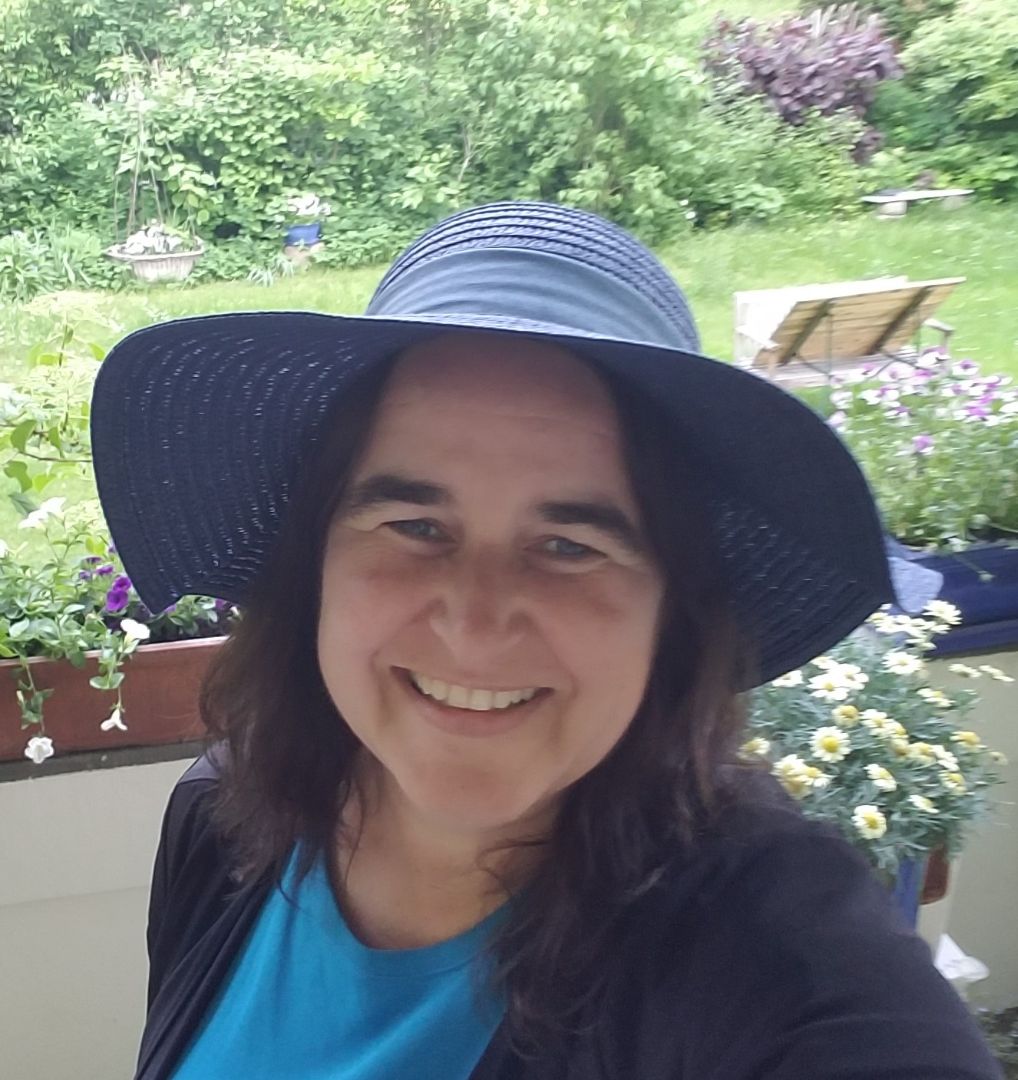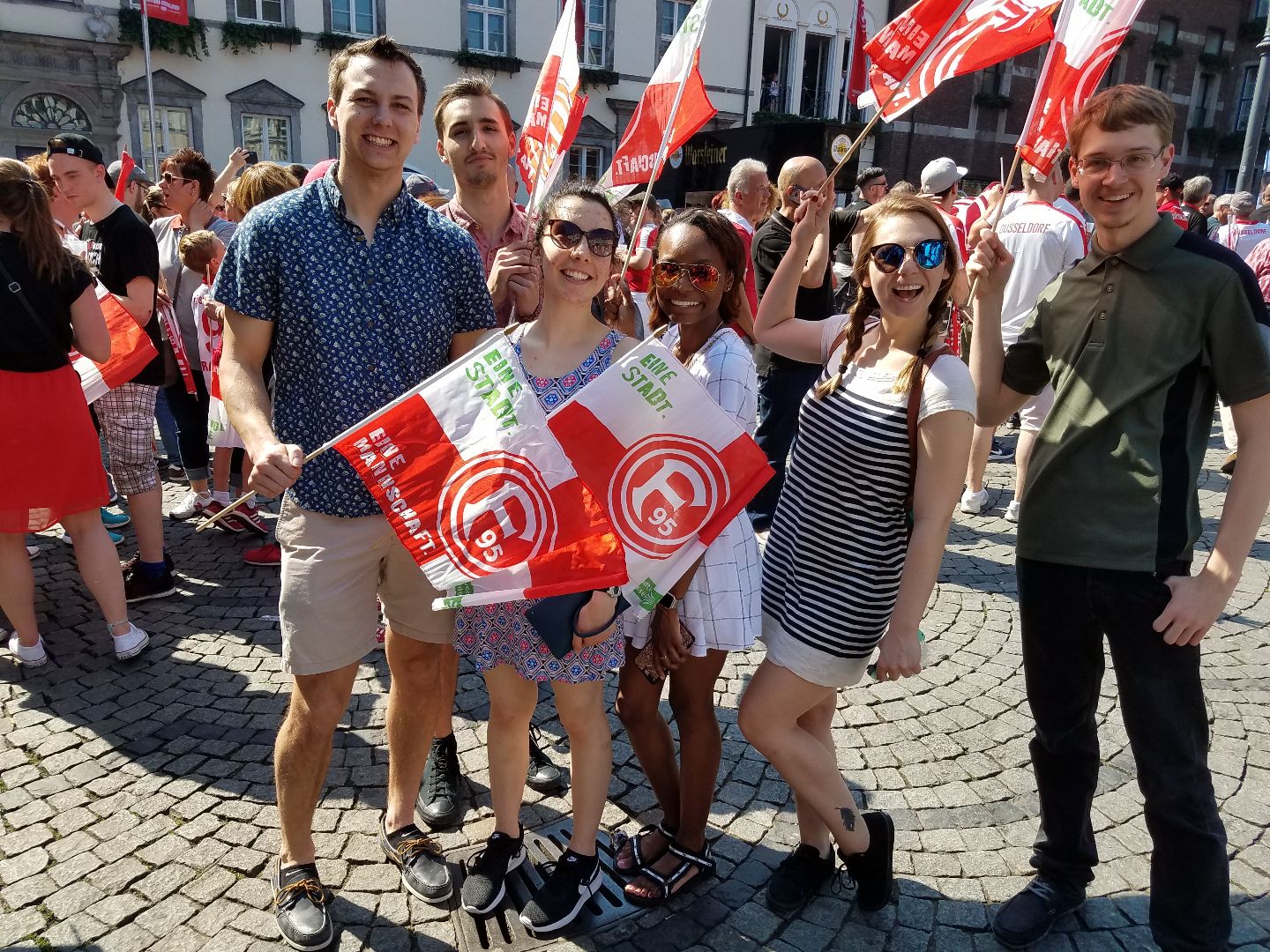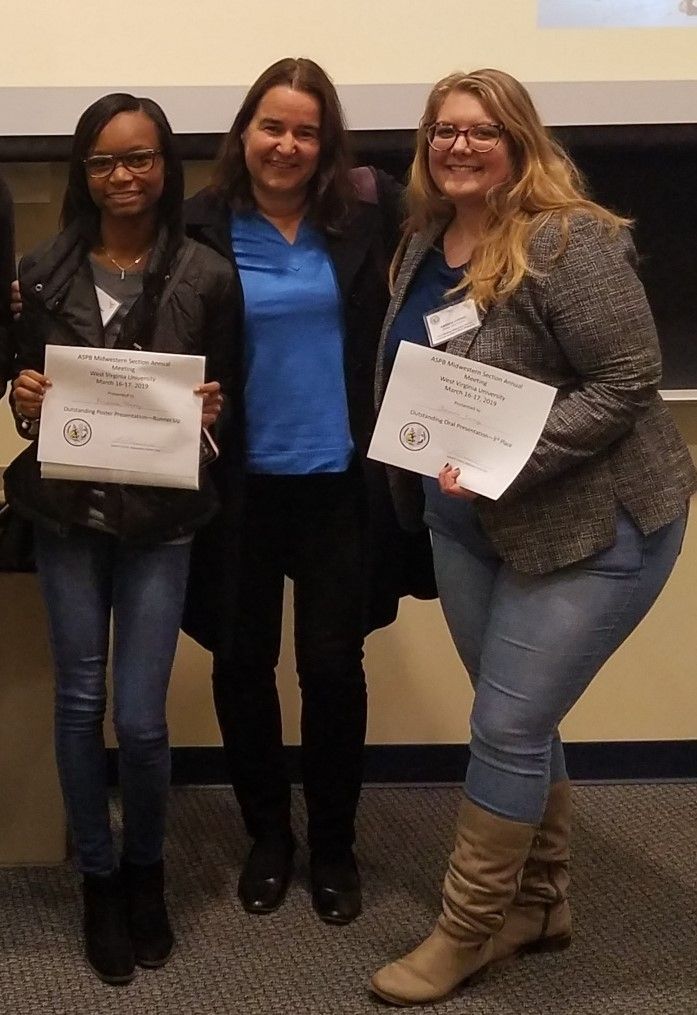Susanne Hoffmann-Benning • Associate Professor and Director of Undergraduate Education, Department of Biochemistry and Molecular Biology; Associate Director, Genetics and Genome Sciences Graduate Program, College of Natural Science

Susanne Hoffmann-Benning is the faculty lead for two bilateral exchange programs between MSU and the Heinrich Heine University in Düsseldorf, Germany: the Molecular Biology Research in Düsseldorf Exchange program, as well as the iGRAD Plant Graduate Exchange Program, which is one the few of its kind and one of the most successful at MSU. Her efforts exemplify the qualifications for the MSU Award for Outstanding Service to Education Abroad.
Hoffman-Benning grew up in a small village in Germany, where few children received a high school diploma. With the strong support of her parents, she became the first in her family to receive a high school diploma and—upon studying biology—was also the first to receive a master’s degree. She has been committed to amplifying the value of education since.
Hoffmann-Benning earned a Ph.D. in genetics from MSU and served as a postdoctoral research associate at the Institute of Genome Research in Berlin. She returned to MSU first in the DOE-Plant Research Laboratory, then at the Mass Spectrometry facility and has spent the last 18 years in the Department of Biochemistry and Molecular Biology.
The undergraduate education abroad program provides MSU students the experience to conduct research before graduation at top research labs in Germany—a total of 73 MSU undergraduates have studied in Düsseldorf and 52 Heinrich Heine undergraduates have come to MSU. Five of our former exchange students applied and were accepted to graduate school at MSU.

With funding from the College of Natural Science, the Graduate School and support from several departments, including the Department of Biochemistry and Molecular Biology and the DOE-Plant Research Laboratory the iGRAD-Plant Graduate Exchange program provides funding for students’ travel costs and their participation in the Network, Exchange, and Training Program to Understand Plant Resource Allocation (NEXTplant). Since its beginning, a total of 34 graduate students from HHU and MSU have benefitted from the program.
I hope that our students have a great research experience per se, but also with the added component of immersing in a different culture, travel, taking classes and interacting with students from different backgrounds. My hope is that this experience makes them passionate scientists with an open mind and the ability to collaborate and communicate beyond borders. Even those that decide not to become scientists but rather doctors, etc. will hopefully remember this international experience and encourage other young people to participate in similar exchanges and be curious, adventurous, and open minded. Because this exchange is for graduate and undergraduate students and is bilateral and with one specific university—Heinrich Heine University Düsseldorf—these various student cohorts do overlap and intermingle, and form some lifelong friendships as a result. This is not just an exchange, but also a recruiting program for both universities that will lead to globally educated scholars.

All science students should have an independent research experience during their undergraduate careers—our students are special in that they not only experience research in the U.S. as a prerequisite, but also in another country. This is unusual for the typical undergraduate student and has given some of our students an edge when it comes to graduate/professional schools.
A bilateral exchange benefits both universities. It brings students and faculty closer and can lead to reciprocal recruitment of young talent and true collaborations between faculty of the two universities. In biological terms, you could call it a symbiosis as both universities put in effort and both benefit. There are several collaborative publications between MSU and HHU labs with graduate student and/or undergraduate student co-authors. The grant that funds the HHU graduate student visits to MSU hinges on these true collaborations and we hope to attract funding to MSU in a similar fashion soon.
I try to convey that experiencing a different country and their approaches to life, work and research broadens their horizons and improves their skills in dealing with people from different cultures. It gives them the ability to see more than one perspective.
I came to MSU as an international student in 1988 at a time when there weren’t that many of us. It was a unique and wonderful experience, and even though I was homesick and returned to Germany after my Ph.D., I ultimately returned to the U.S. I want to have as many students as possible have such an international experience, even if just for the summer and even if being a scientist is not their ultimate goal. It shows them the world from a different perspective and teaches them to be more flexible and tolerant. If I had all the money in the world, I would make such an experience mandatory and provide the funding so that all students, regardless of socioeconomic background can participate.
Aside from being a researcher, I love mentoring the next generation, whether it is my own kids, students in my classes, undergraduate students, students in my lab or students in the exchange program. There is nothing more rewarding than seeing them succeed.
All my efforts would be for naught if I didn’t have such a great group of associated faculty at MSU and HHU who gladly serve as hosts to incoming graduate and undergraduate students on both sides; and from several chairs and directors, study abroad, CNS and the Graduate School to help finance the exchange and retreats.
If you are faculty: Encourage students to go on an international experience. If you are a student: Go! If you are a donor: Give money so students can afford to go. If you are an MSU administrator: Thank you for letting this program happen! I hope we can support the Office of Education Abroad to bring staff back to the office, so we can support our current programs and initiate additional similar programs.
Nominated by: Erich Grotewold, Professor and Chair, Department of Biochemistry and Molecular Biology, College of Natural Science
The MSU Award for Outstanding Service to Education Abroad recognizes MSU faculty members and academic staff who give their time, energy, and creativity to the development and implementation of education abroad programs that support MSU's commitment to providing students with high quality international education opportunities.